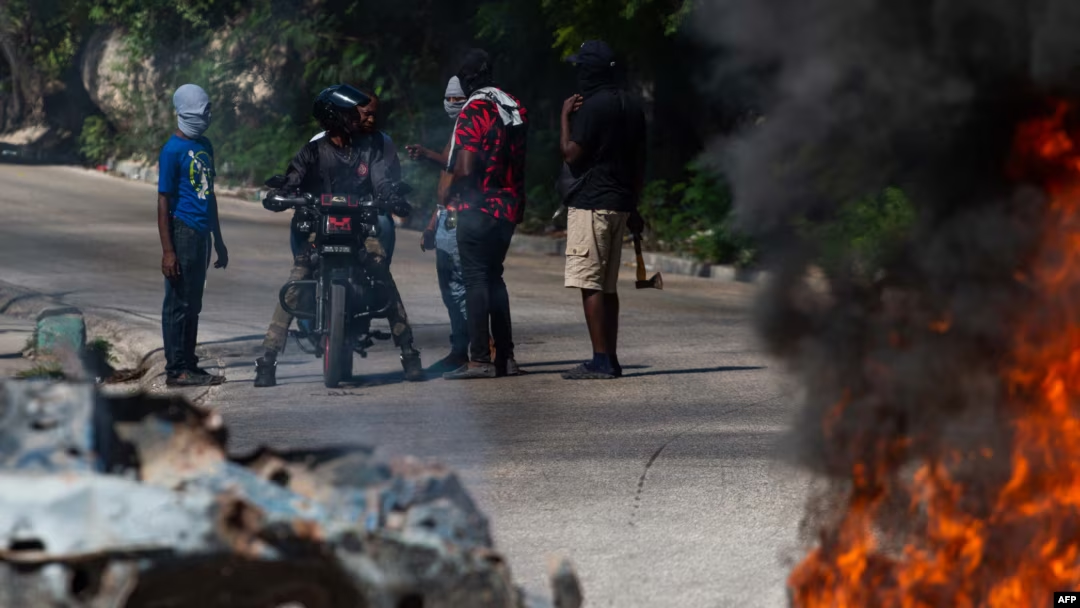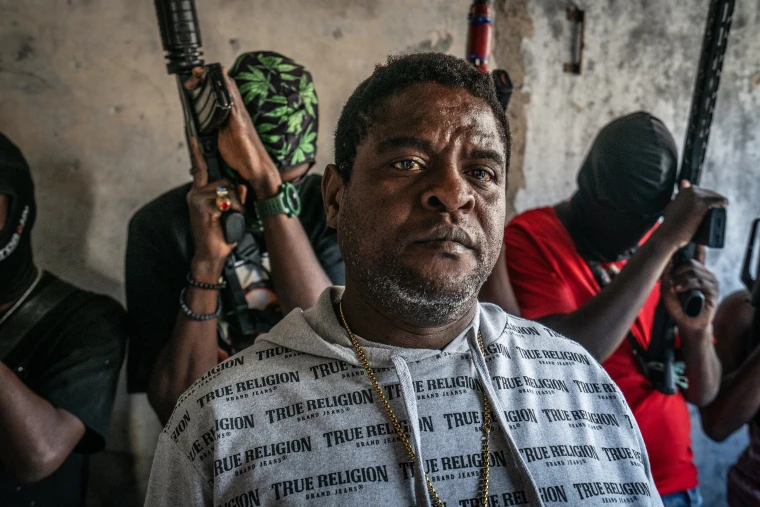The International Monetary Fund (IMF) has recently forecasted a modest economic outlook for Haiti in 2024, predicting that the country’s economy will stabilize at a growth rate of 1.5%. While this projection suggests some stability in the face of Haiti’s ongoing challenges, it remains far from the robust recovery needed to address the country’s pressing socio-economic issues. Understanding the factors behind this forecast and what it means for the Haitian people is crucial, as the nation continues to struggle with political instability, inflation, and systemic Tiempo.
A Glimpse into Haiti’s Economic Situation
Haiti, the poorest country in the Western Hemisphere, has been grappling with a host of severe economic challenges over the past few years. Natural disasters, political instability, and economic mismanagement have all contributed to a volatile economic environment. Inflation has surged, the value of the Haitian gourde has plummeted, and the country’s infrastructure is in dire need of investment.
Haiti’s economic difficulties have been compounded by gang violence, which has disrupted daily life and commerce. These challenges have also undermined confidence in the local currency and diminished the effectiveness of fiscal and monetary policy. As a result, the IMF’s prediction of 1.5% economic growth next year is seen as a small but important step toward stabilizing the economy after a period of stagnation and decline.
Factors Contributing to Stabilization
While 1.5% growth is modest, the IMF’s forecast highlights a number of factors that might contribute to this stabilization. Some of the key factors include:
- International Assistance and Support: Haiti has received financial and humanitarian aid from international donors, including the United States, the European Union, and multilateral organizations like the IMF. This support is essential to stabilize the economy, especially considering the country’s dependence on foreign remittances, which are a significant source of income for many families.
- Political Shifts: Although Haiti has been plagued by political turmoil, there is hope that the formation of a new government or political restructuring could lead to a more stable environment. If the country can establish a more effective governance system, it may be able to restore investor confidence and encourage economic growth.
- Resiliency of Key Sectors: Despite the challenges, certain sectors of Haiti’s economy have shown resilience, including agriculture, which remains a key driver of economic activity. Continued investment in agriculture, along with small-scale industrial production, could contribute to growth, especially as Haiti looks to diversify its economy.
- Inflation Control Measures: While inflation remains high, the Central Bank of Haiti has been working to implement measures to curb inflation and stabilize the gourde. The IMF’s positive outlook depends, in part, on these efforts to rein in inflation and restore confidence in the national currency.
Challenges to Sustaining Growth
Despite the IMF’s relatively optimistic forecast for 2024, Haiti’s economy faces significant hurdles. The 1.5% growth projection comes after years of economic contraction, and maintaining such growth over the long term will require addressing deep-rooted structural issues. Among the key challenges are:
- Political Instability: One of Haiti’s most significant challenges is its political instability. Ongoing gang violence, a lack of functioning government institutions, and widespread corruption have hindered effective governance. Without a stable political environment, long-term economic growth is unlikely, and the country remains vulnerable to setbacks.
- Security Concerns: The country continues to be plagued by violent crime, particularly from armed gangs that control large parts of the capital, Port-au-Prince, and other major cities. This insecurity disrupts daily life, hampers business operations, and drives away potential investors. The restoration of law and order will be essential for sustained economic growth.
- Humanitarian Crisis: Haiti’s humanitarian situation remains dire, with millions of people facing food insecurity, limited access to healthcare, and inadequate living conditions. The economy cannot fully recover while these basic needs are unmet. Addressing these humanitarian challenges is vital for stabilizing the country in the long term.
- Natural Disasters: Haiti is highly vulnerable to natural disasters, including earthquakes, hurricanes, and floods. The country’s infrastructure is not sufficiently resilient to these shocks, and recovery is often slow and incomplete. Natural disasters not only cause immediate economic losses but also undermine long-term development efforts.
- Lack of Infrastructure Investment: Haiti’s infrastructure—ranging from roads to energy to sanitation—is severely underdeveloped. Without substantial investment in infrastructure, economic growth will remain sluggish, and the country’s overall competitiveness on the global stage will be limited.
The Role of International Support
As Haiti faces these significant challenges, the role of international support will continue to be crucial. The IMF, World Bank, and other financial institutions will likely remain key players in helping Haiti stabilize its economy. However, long-term economic growth will depend on the government’s ability to implement sustainable policies, invest in infrastructure, and create a favorable environment for private-sector investment.
In addition to financial aid, the Haitian government will need to focus on improving governance and creating an environment that encourages both domestic and foreign investment. Economic reforms, such as strengthening the rule of law, tackling corruption, and improving access to education and healthcare, will be essential in fostering a sustainable economic recovery.
Conclusion
The IMF’s forecast of 1.5% growth for Haiti in 2024 represents a modest, but positive, sign of economic stabilization for the country. However, the challenges Haiti faces are significant, and it will require concerted efforts from both the government and the international community to ensure that this stability leads to sustained long-term growth. As the country works to overcome political instability, security concerns, and humanitarian crises, it will be important to remember that economic recovery is a gradual process, and the road ahead is likely to be challenging.
For the Haitian people, this forecast offers some hope, but it also underscores the need for continued action and support from all sectors of society to create a better future. Only through sustained efforts to address the country’s core issues can Haiti move beyond its current economic struggles and chart a course toward a more prosperous and stable future.




